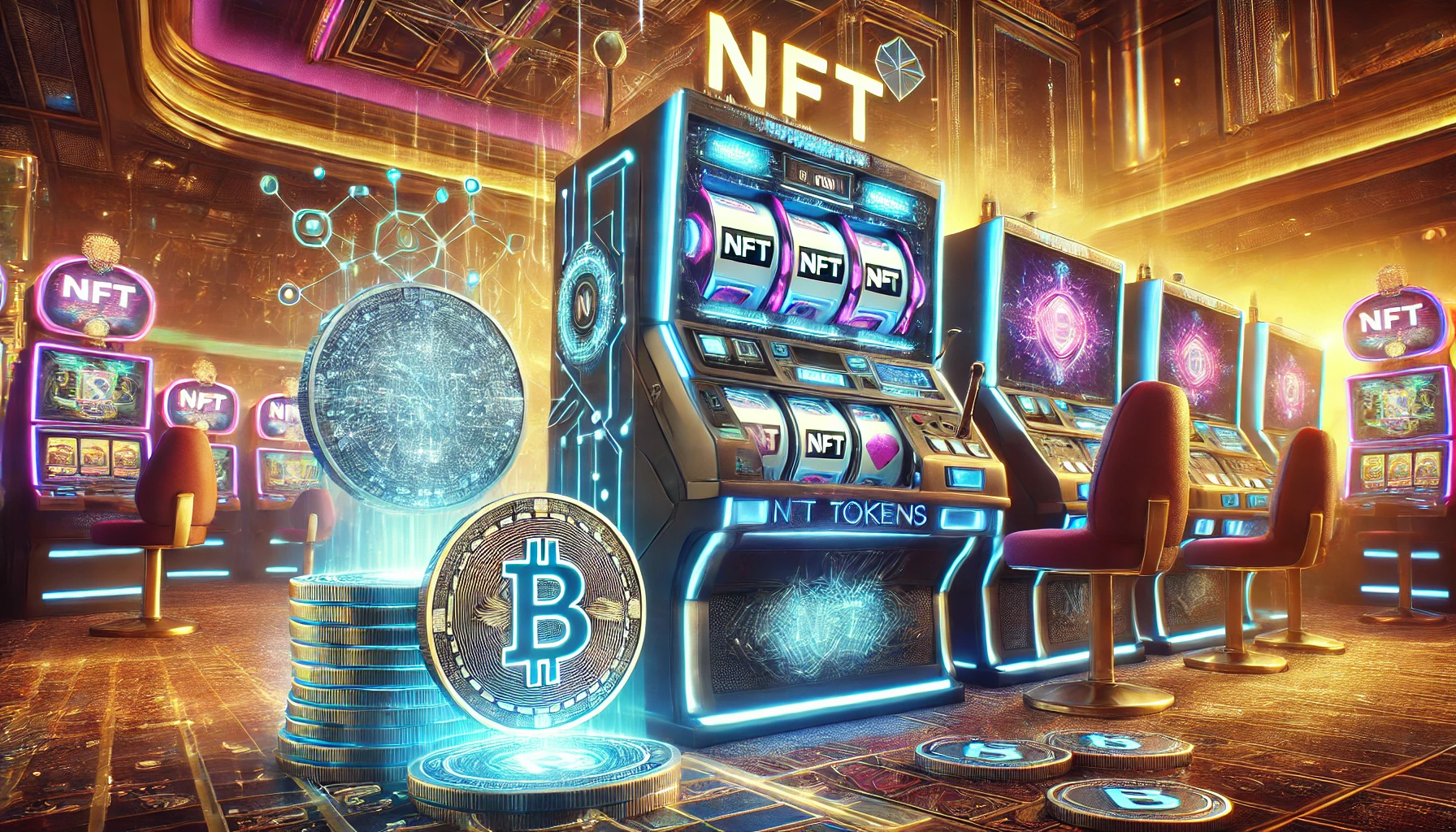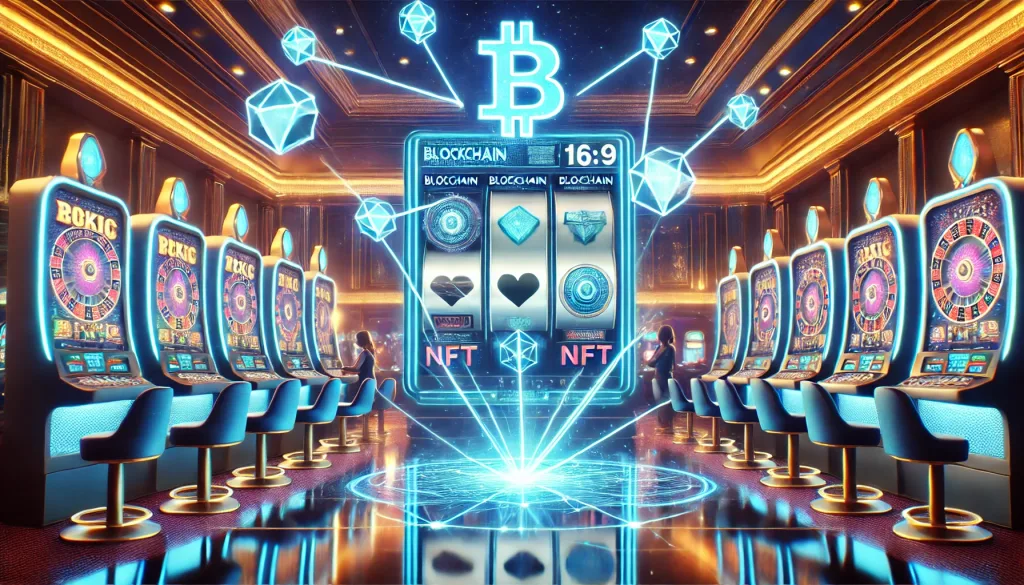
Tokens Based on NFTs: A New Way of Rewards in Slots
Tokens based on NFTs have emerged as a revolutionary concept in the gambling industry, particularly in online slots. This innovative approach combines blockchain technology with traditional gameplay, offering players an exciting new way to earn and utilise rewards. The concept is gaining traction due to its ability to introduce transparency, uniqueness, and value to gaming rewards. But what are NFT-based tokens, and how do they change the gaming landscape? Let’s delve deeper into this transformative trend and its implications for the gambling industry.
What Are NFT-Based Tokens?
NFT-based tokens, or Non-Fungible Tokens, are unique digital assets built on blockchain technology. Unlike traditional cryptocurrencies, each NFT has a distinctive value and cannot be replicated. They are designed to provide ownership over digital or physical items, making them an ideal solution for integrating real-world value into gaming environments. In the world of online slots, these tokens act as virtual rewards with tangible value, adding a new layer of excitement to gaming and transforming how players perceive their rewards.
The incorporation of NFTs in slots allows players to own a piece of the game itself. Whether it’s rare in-game assets, exclusive privileges, or tradable collectibles, NFTs enable a level of interaction that goes beyond standard gameplay. For example, some slot games use NFTs as jackpots, offering players a chance to win valuable digital assets instead of or alongside traditional monetary rewards. This blending of entertainment and blockchain technology opens the door to a more engaging and potentially lucrative gaming experience.
How Do NFTs Work in Slots?
In NFT-integrated slots, players earn rewards that are stored as tokens on a blockchain. These tokens can represent in-game items, collectibles, or even special privileges. For example, a rare NFT token might unlock exclusive game levels, enhance a player’s chances of winning, or be traded for cryptocurrencies. The process works seamlessly within the blockchain infrastructure, ensuring that every reward is traceable, secure, and immutable. This level of transparency reassures players of the legitimacy and fairness of the game, fostering greater trust in the platform.
Furthermore, NFTs allow for a dynamic rewards system. Unlike traditional slot games where rewards are predefined, NFT-based rewards can evolve over time. A player’s token might gain value as it becomes rarer or more desirable within the gaming community. Additionally, some platforms enable players to trade or sell their NFT rewards on secondary markets, offering them a tangible financial incentive to engage more deeply with the game.
The Benefits of NFT Integration in Slots
Integrating NFTs into slot games offers numerous advantages for players and operators alike. It creates a transparent, secure ecosystem for tracking rewards, enhances player engagement, and introduces a real-world value to virtual achievements. By allowing players to own and trade their rewards, NFT slots foster a sense of ownership and community within the gaming platform. This ownership incentivises players to continue participating, knowing that their efforts can yield rewards with lasting value beyond the game.
One of the most significant benefits is the ability to create a personalised gaming experience. NFT tokens can be tailored to each player’s preferences, offering unique bonuses, customised visuals, or exclusive gameplay features. This level of personalisation makes players feel more connected to the game, enhancing their overall enjoyment and loyalty. Moreover, operators benefit from increased retention rates and the potential to attract a broader audience interested in blockchain and cryptocurrency innovations.
Transparency and Security
Blockchain technology ensures that NFT rewards are securely recorded and cannot be tampered with. Players can verify their ownership and track transactions, fostering trust and confidence in the gaming process. Unlike traditional reward systems, which can be opaque and prone to manipulation, blockchain-based systems offer unparalleled transparency. This transparency extends to every aspect of the gaming experience, from verifying game fairness to ensuring that rewards are distributed equitably.
Additionally, the decentralised nature of blockchain adds an extra layer of security. NFT-based rewards are immune to fraud or duplication, making them a reliable and trustworthy option for players. As a result, operators can build a reputation for fairness and integrity, which is increasingly important in the competitive online gambling market. This combination of security and transparency sets NFT slots apart from traditional games, appealing to players who value accountability and innovation.

The Future of NFT Tokens in Gambling
The potential applications of NFT tokens in gambling are vast. They could pave the way for cross-game rewards, personalised gaming experiences, and entirely new revenue streams for operators. By integrating NFTs across multiple games or platforms, operators can create interconnected ecosystems where players can use their rewards universally. This interoperability adds tremendous value, as players are no longer confined to a single game or platform to benefit from their efforts.
Moreover, NFTs could enable innovative gameplay mechanics. For instance, players might use NFT tokens to unlock special tournaments, participate in community events, or access exclusive content. These possibilities make NFT integration an attractive option for operators looking to differentiate themselves in a crowded market. As the technology matures, we can expect to see even more creative uses of NFTs in gambling, reshaping the industry’s landscape.
Challenges to Overcome
While NFTs promise innovation, integrating them into gambling faces hurdles. Regulatory uncertainties, high transaction costs, and a steep learning curve for new players may slow down their acceptance. Developers and operators must work to overcome these barriers for NFTs to reach their full potential in the industry. Regulatory compliance is particularly critical, as gambling laws vary significantly across jurisdictions and may not yet account for blockchain-based innovations.
Accessibility is another challenge that must be addressed. Not all players are familiar with blockchain technology or comfortable navigating cryptocurrency ecosystems. To attract a broader audience, operators must invest in user-friendly interfaces and educational resources that simplify the process of earning, using, and trading NFT rewards. By addressing these challenges, the industry can ensure that NFTs deliver on their promise of transforming the gambling experience.
As the gambling world continues to evolve, NFT-based tokens are likely to play a significant role in shaping the future of online slots. This emerging technology not only enriches the player experience but also sets the stage for a more interconnected and rewarding gaming ecosystem. By embracing NFTs, operators can position themselves at the forefront of innovation, offering players a unique blend of entertainment and value.
